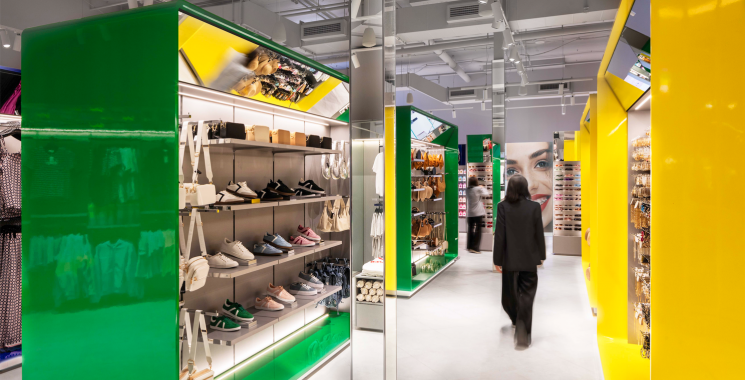
Younger Australians go all-in on sales
PayPal study finds younger shoppers are getting savvier about stretching their dollars, but risk over doing it at the sales
- The younger generation leads the charge in saying ‘no’ to full-price items, with 4-in-5 Gen Zs (80%) and almost 2-in-3 millennials (63%) saying they always look for sales or discounts
- Over half of younger shoppers (55% millennials, Gen Z 61%) say they have held out on buying until prices get slashed.
- Millennials also stand out as the nation’s biggest impulse spenders, ringing up an average of 3.4 unplanned items at a cost of $197 in the last three months.
- More than a third of younger shoppers (34% millennials and 33% Gen Z) admit to regretting a buy after making a sales-driven purchase.
- This comes as more than a quarter of online businesses (29%) now always have at least one sale running, up 34% YoY from 2019 – as retailers race to meet shoppers’ rising expectations
10 June 2021, Sydney: Today’s release of the PayPal EOFY Sales Trends Report 2021 reveals that Australia’s younger shoppers, in particular millennials, are becoming savvier around making their dollars go further, but are also treating themselves to spending sprees and impulse buys during sales season.
Holding out for a promo
Bucking the traditional perception of the young as reckless spenders, almost two thirds of Gen Z (61%) and more than half of millennials (55%) say they have waited until an item went on sale before making the plunge to buy it online. Millennials are also the most likely to have bought an item at full price, returned it and purchased it at a lower price when it went on sale (one-in-six millennials (17%) vs 10% national average).
But it’s not just the young who love a bargain – 50% of Australian consumers across the board report that they “hate buying at full price”. Even while shopping in-store, two in five Australians (40%) admit they’ve researched online prices on their mobiles, to ensure they are nabbing the best deal for their money.
PayPal’s Consumer Shopping Expert, Jessica Rix, said, “Everyone loves getting a good deal, and it’s great to see how Aussie millennials are becoming increasingly savvy in scouting out discounts when they shop.
“As the sales cycle gets busier than before, we’re seeing more millennial shoppers looking for deals to make their dollars go further. On the flipside, this means millennial shoppers can be reluctant to spend outside of sales season – we found over a quarter (27%) saying they only shop when items are on sale or discounted with only one-in-ten (10%) saying they don’t care whether items are on sale or not.”
The flood gates open at sales season
Once sales season rolls around, millennials go all-in. One-in-five millennials (21%) confessed to sales FOMO, saying they felt like they are “losing money” if they don’t buy an item they want on sale. About the same number – one-in-five millennials (19%) – admit to being “addicted” to shopping the sales.
Millennials also stand out as the nation’s biggest impulse buyers. The average millennial shopper rang up 3.4 unplanned items at a cost of $197 in the last three months, which is about 60% more purchases and $87 more than the average Aussie shopper (2.1 items at a cost of $110 national average). Millennials are also an adventurous generation with their shopping, with over a quarter (27%) having bought new brands they wouldn’t usually buy because these were on sale.
Beware of buyer’s remorse
Unfortunately, impulse buying can sometimes lead to regret, and younger shoppers are more likely to experience sales-driven buyer’s remorse. More than a third of millennial shoppers (34% vs. 24% national average) admitted to feeling regret after making a sales-driven purchase. Additionally, almost two-in-five millennials (37%) reported they had bought an item they didn’t need because it was on sale (vs 26% national average).
Shopping smart
Nearly a third of Australians (31%) believe there are more sales on now than two years before, with about a quarter (23%) attributing this to the economic impact of COVID-19.
“With so many sale events now, it is easy to get carried away. Still, it is important to plan and keep a cool head going in. Sales are a great time to buy what you need or try something new, as long as you are spending within your means and love your new purchases.” Ms. Rix said.
To get the best out of the sales, Ms. Rix shared some tips and tricks:
- Shop with a budget and plan your purchases – give yourself a budget before you embark on a shopping spree and consider the items you really need or want. Make a list and do your best to stick with it. It’s not a bargain if you’re never going to use it.
- Do your research and price compare – check that you are getting a good price for your purchase and make use of the internet to research the deals around.
- Make use of discount coupons – look for discount codes and coupons, which can help you save even more or take the sting out of hefty shipping costs. Honey, for instance, automatically searches for discount codes and applies them to your cart at various retailers.
- Check the returns policy – avoid ‘buyer’s remorse’ and give yourself a way out – shop with retailers where you can be assured of a decent returns policy. Paying with PayPal lets you access free return shipping* if you aren’t satisfied with your buy, and you may also be eligible for our Buyer Protection if the product fails to arrive.
- Stay safe while shopping – shop with reputable merchants and be cautious in sharing your payment information at checkout.
Online retailers give bricks-and-mortar shops a run for their money
While slightly more Australians still shop the sales in-store (55%), the scales are shifting with the majority saying they prefer to shop the sales online (51%). This preference to shop online is significantly higher for younger shoppers, with millennials leading the charge (70%).
Aussie shoppers see a variety of benefits to shopping the sales online rather than in-store. Over a third of Australians say it is faster and more convenient to shop sale events online (39%), that there is more product choice online (37%), and that they get better deals online (36%).
The good news for consumers is that many businesses recognise the importance of offering discounts to attract new customers and earn consumer loyalty. More than a quarter of online businesses (29%) report that they always have at least one sale running, up by a third from two years ago (19% in 2019). Over half (63%) offer sales during the year outside of sales seasons, with two in five (39%) saying they participate in the traditional sales periods of the year.
"Having grown up with the Internet and emergence of online sales events, millennials will naturally gravitate to where they can quickly and easily find the best bang for their buck with the least hassle. So, it’s no surprise that the on-line sales are now going neck to neck with offline.
“Regardless of whether a consumer is shopping in-store or online, digital experiences are becoming the consumer expectation. With nearly 40% of Australians reporting that they’re on their mobile phones researching competitor prices while physically shopping in-store, retailers can’t underestimate the importance of digital across all environments.
“COVID increased the pace of consumer behaviour change. More Aussie shoppers started buying online and picking up in-store and conversely going to physical stores to view goods then making digital purchases to have delivered to their door. Digital has become intrinsic to both online and off line channels and we are seeing Australian consumers adapting their behaviours to seize the best of both digital and traditional sales,” concluded Ms. Rix.
About the PayPal EOFY Sales Trends Report 2021
The PayPal EOFY Sales Trends Report 2021 surveys the online payment behaviours and expectations of Australians (merchant and consumers) in relation to discount buying / selling and participation in sales periods such as EOFY. The research was commissioned by PayPal Australia Pty Limited (ABN 93 111 195 389 AFSL 304962) and was conducted by ACA Research (ABN 66 001 598 558) between Wednesday 21st April to Monday 3rd May 2021.
Respondents completed an online self-completion survey, with a total of 1,008 consumers and 417 businesses taking part in the research. Sample was sourced through consumer and business research panels, with participants incentivised for completing the survey. The research was carried out in compliance with the AMSRS Guidelines and National Privacy Principles.
Generational Ages as at 2021: Gen Z (18-26 years); Millennial (27-38 years); Gen X (39-53 years); Baby Boomer (54-68 years); Older Australians (69+ years)












